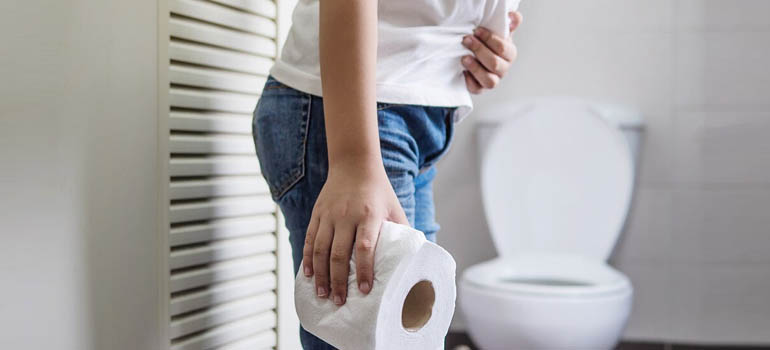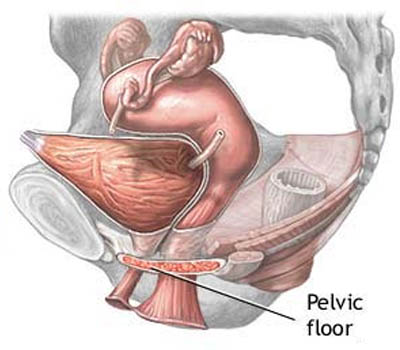
Urinary incontinence (Leakage)
Urinary incontinence, also known as leakage, is the involuntary loss of urine. It's a common problem that can affect people of all ages, genders, and races. While it can be embarrassing, urinary incontinence is treatable.
Types of Urinary Incontinence:
There are several types of urinary incontinence, each with its own cause:
-
Stress incontinence: This is the most common type, and it occurs when urine leaks out during activities that put pressure on your bladder, such as coughing, laughing, sneezing, exercising, or lifting heavy objects. Weakened pelvic floor muscles, which normally support your bladder, can contribute to stress incontinence.
-
Urge incontinence: This is also known as overactive bladder. You have a sudden, strong urge to urinate, and you may leak urine before you can make it to the bathroom. Urge incontinence can be caused by a variety of factors, such as bladder irritation, urinary tract infections (UTIs), or neurological conditions.
-
Overflow incontinence: This occurs when your bladder doesn't empty completely, and urine leaks out. This can be caused by a blockage in the urinary tract or weak bladder muscles.
-
Mixed incontinence: This is a combination of two or more types of incontinence.
Causes of Urinary Incontinence:
Several factors can contribute to urinary incontinence, including:
-
Weakened pelvic floor muscles: Childbirth, vaginal delivery, and aging can weaken the pelvic floor muscles that support the bladder and urethra (the tube that carries urine out of the body).
-
Neurological conditions: Conditions like stroke, spinal cord injury, or multiple sclerosis can damage the nerves that control the bladder.
-
Medical conditions: Urinary tract infections, diabetes, and interstitial cystitis (bladder pain syndrome) can irritate the bladder and lead to leakage.
-
Surgery: Certain surgeries, such as prostate surgery in men or hysterectomy in women, can increase the risk of incontinence.
-
Medications: Some medications, such as diuretics and blood pressure medications, can increase urine production and contribute to incontinence.
-
Obesity: Excess weight can put extra strain on the bladder and pelvic floor muscles.
Symptoms of Urinary Incontinence:
The main symptom of urinary incontinence is the involuntary leakage of urine. The amount of leakage can vary from a few drops to a complete emptying of the bladder.

Diagnosis:
If you're experiencing urinary incontinence, Dr. Poddar at Precision Gynaecology can help diagnose the cause and recommend treatment. Diagnosis may involve:
-
Pelvic exam: This helps assess the strength of your pelvic floor muscles.
-
Urine tests: These can rule out infection or other problems.
-
Urodynamic testing: This series of tests evaluates how well your bladder and urethra are storing and releasing urine.
Treatment Options:
There are a variety of treatment options available for urinary incontinence, depending on the type and severity of your condition. Dr. Poddar will work with you to develop a personalized treatment plan that may include:
-
Pelvic floor muscle exercises (Kegels): Strengthening these muscles can help improve bladder control.
-
Lifestyle changes: Losing weight, managing fluids, and avoiding bladder irritants like caffeine and alcohol can all help.
-
Bladder training: This involves techniques to retrain your bladder to hold urine for longer periods.
-
Medication: Medications can help relax the bladder muscles or decrease urine production.
-
Medical devices: Pessaries (inserts placed in the vagina) or urethral bulking agents (injections around the urethra) can improve bladder support.
-
Laser Vaginal Therapy: Laser therapy builds up the collagen and elastin fibres, increases the thickness of vaginal and periurethral tissues. It helps in mild to moderate degrees of urinary incontinence.
-
Surgery: In some cases, surgery may be recommended to repair or tighten the pelvic floor muscles or correct structural problems


Living with Urinary Incontinence:
Urinary incontinence can be a frustrating condition, but it's important to remember that you're not alone and there is help available. With proper diagnosis and treatment, most people with urinary incontinence can improve their bladder control and quality of life.
If you're experiencing urinary incontinence, schedule an appointment with Dr. Neha Poddar at Precision Gynaecology. She can help you understand your condition and develop a treatment plan that's right for you.
FAQS
Urinary incontinence, also known as bladder leakage, is a common condition characterized by the involuntary loss of urine. It can range from occasional mild leakage to severe and frequent episodes that significantly impact daily life. Urinary incontinence can be caused by several factors, including weakened pelvic floor muscles due to childbirth, aging, or obesity, nerve damage from conditions such as diabetes or multiple sclerosis, hormonal changes during menopause, urinary tract infections (UTIs), or certain medications that affect bladder function. Other contributing factors may include chronic coughing, constipation, or conditions that increase intra-abdominal pressure. Dr. Neha Poddar can conduct thorough evaluations to determine the underlying cause of urinary incontinence and discuss appropriate treatment options at Precision Gynaecology. Dr. Neha Poddar at Precision Gynaecology specializes in diagnosing and managing urinary incontinence to improve bladder control and quality of life.
Symptoms of urinary incontinence may vary depending on the type and severity of the condition. Common symptoms include leaking urine when coughing, sneezing, laughing, or lifting heavy objects (stress incontinence), sudden strong urges to urinate followed by leakage before reaching the toilet (urge incontinence), frequent urination (overactive bladder), or a combination of these symptoms. Some individuals may also experience nocturnal enuresis (bedwetting) or difficulty fully emptying the bladder (overflow incontinence). If you suspect you may have urinary incontinence or are experiencing symptoms, it's important to consult with Dr. Neha Poddar for evaluation and management at Precision Gynaecology.
Treatment for urinary incontinence depends on various factors such as the type and severity of incontinence, underlying causes, and individual preferences. Dr. Neha Poddar may recommend conservative treatments such as pelvic floor exercises (Kegels), bladder training techniques, lifestyle modifications, or medications laser Vaginal therapy to manage symptoms. In some cases, surgical interventions such as sling procedures, bladder suspension, or nerve stimulation may be necessary to improve bladder control. At Precision Gynaecology, Dr. Poddar provides personalized treatment plans tailored to each patient's needs and goals.
- General Gynae
- Menstrual Disorders
- Vaginal discharge
- Cervical Cancer - Screening & Vaccination
- Pelvic inflammatory disease (PID)
- Infertility treatment (IVF & IUI)
- Uterine polyps
- Septate Uterus (Uterine Septum)
- Uterine Fibroids
- Ovarian Cysts
- Dermoid Cysts
- Ectopic Pregnancy
- Endometriosis
- Menopause
- Hormonal Disorders
- PCOS and Hyperprolactinemia
- Gynae Endoscopy
- Uro Gynae
Are you seeking a qualified and experienced gynecologist and obstetrician in Ghaziabad? Look no further than Dr. Neha Poddar!
- Call 9318413696, 9958170476
- Whatsapp 9318413696

Doctors
-

Dr. Madhu Poddar
-

Dr. R.K. Poddar
-

Dr. Neha Poddar
-

Dr. Rahul Poddar